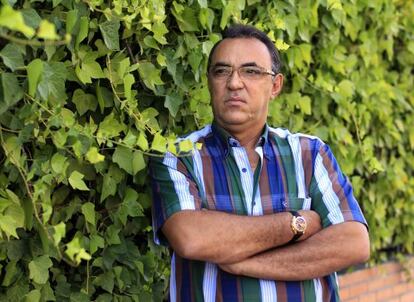France requests police protection for Obiang corruption witness in Spain
Attempt was made on the life of Germán Tomo in 2005


French authorities have asked the Spanish Interior Ministry to provide police protection for an Equatorial Guinean businessman who is a key witness in Paris's case against Teodorín Obiang Nguema Mangue, vice president of the former Spanish colony and son of the country's dictator, Teodoro Obiang.
Teodorín, 43, who lived in Paris for several years, is wanted by French authorities for embezzlement, money laundering and several other charges, and has since fled back to Malabo to avoid arrest. On November 27, a French judicial commission took testimony from Germán Pedro Tomo, who has lived in Spain since 2004. Tomo stated that he paid illegal commissions to Teodorín to export wood from the African state and provided evidence of the suspect's extortion of businessmen, judicial sources said. Several wood exporters have stated that when Teodorín served as agriculture minister he would charge an illegal commission of 10 percent to do business.
The request for police protection for Tomo is based on his importance to the case and a chilling precedent: in 2005 Colombian hitmen made an attempt on the businessman's life in Madrid. They mistakenly identified Tomo's brother and stabbed him as he left Tomo's house in Alcorcón. The assassins were hired by two Spaniards living in Equatorial Guinea, who were arrested and jailed for 11 years. Tomo claims that those who ordered the hit were trying to curry favor with Teodoro Obiang.
"It was a consequence of my first declaration to the NGOs Human Rights Watch and Global Witness in the case against Riggs bank, where the Obiang family hid their petrol accounts," said Tomo. "They wanted to eliminate me."
They wanted to eliminate me"
Óscar Pérez Bidegain, one of the men sentenced for the attempt, was pardoned by the previous Socialist government in 2010. Pérez ran a construction materials company in Equatorial Guinea and enjoyed a close relationship with Manuel Nguema Mba, the country's security minister and Teodorín's uncle.
Tomo is a former deputy for the Democratic Party of Equatorial Guinea, Obiang's party, and now an opposer-in-exile. He is also a witness in almost of all the judicial investigations surrounding Teodorín.
The French judges and prosecutors sent to Madrid also took statements from other businessmen who worked in the wood export trade in Equatorial Guinea and who described similar experiences to those of Tomo. An anti-corruption prosecutor designated by chief prosecutor Antonio Salinas was also present.
In his position as minister for forests, which he vacated a few months ago, Teodorín created a company called Somagui Forestal, into the coffers of which 10 percent of the value of every shipment leaving the country had to be deposited, according to Tomo and other witnesses. "Without payment there was no authorization," says Tomo.
Companies left, fed up with paying. The corruption is endemic"
"Why do you think there are no Spanish businesses there?" asks an exporter who prefers to remain anonymous. "They had to leave. They were fed up with paying. The corruption there is endemic." Of the 70 wood-exporting businesses that operated in the country in the 1970s, only 18 remain.
French authorities in February embargoed a building in Paris belonging to Teodorín: 42 Avenue Foch, a 5,000-square-meter property valued at 40 million euros. The removal vans were filled with works of art, a Rodin statue and a Luis XIV dresser, worth 1.6 million euros. All of these treasures were purchased through Somagui Forestal.
Tu suscripción se está usando en otro dispositivo
¿Quieres añadir otro usuario a tu suscripción?
Si continúas leyendo en este dispositivo, no se podrá leer en el otro.
FlechaTu suscripción se está usando en otro dispositivo y solo puedes acceder a EL PAÍS desde un dispositivo a la vez.
Si quieres compartir tu cuenta, cambia tu suscripción a la modalidad Premium, así podrás añadir otro usuario. Cada uno accederá con su propia cuenta de email, lo que os permitirá personalizar vuestra experiencia en EL PAÍS.
¿Tienes una suscripción de empresa? Accede aquí para contratar más cuentas.
En el caso de no saber quién está usando tu cuenta, te recomendamos cambiar tu contraseña aquí.
Si decides continuar compartiendo tu cuenta, este mensaje se mostrará en tu dispositivo y en el de la otra persona que está usando tu cuenta de forma indefinida, afectando a tu experiencia de lectura. Puedes consultar aquí los términos y condiciones de la suscripción digital.








































